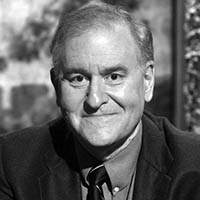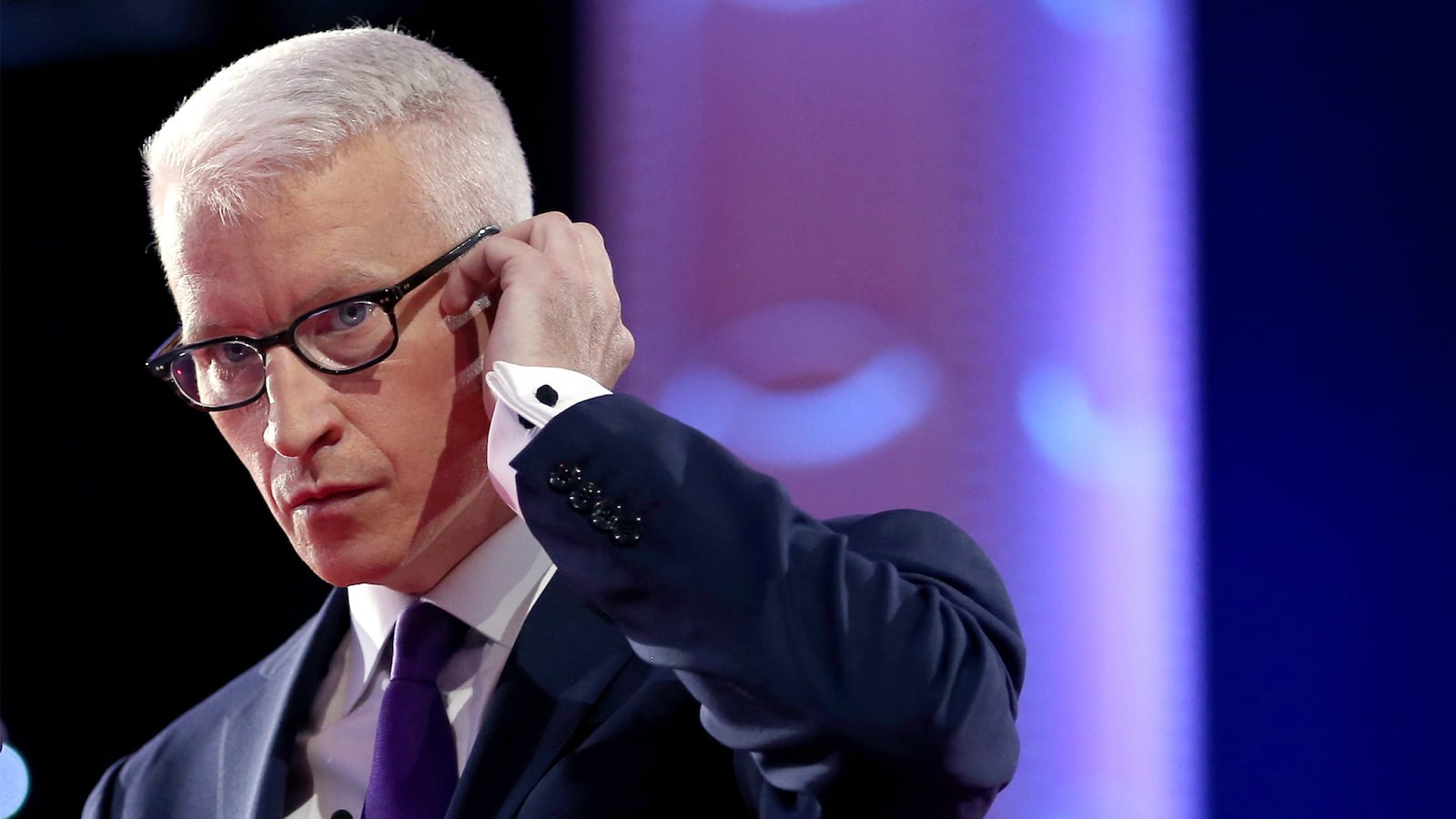Dear Anderson Cooper,
As you prepare to moderate the coming Republican town hall, there is one subject that has not been discussed in a single Republican debate—voting rights. You have an opportunity to be the FIRST debate moderator to seek their views on the future of the Voting Rights Act and the problem of voter suppression—critical issues in this election year.
First a bit of history. For decades, Republicans were proud to be known as “the party of Lincoln” and many played a key role in creating and then later defending the historic 1965 Voting Rights Act. The original act was written in the office of Republican Minority Leader Senator Everett Dirksen, who joined with President Lyndon Johnson’s lawyers to craft a bill that would win bipartisan support. They were successful: 92 percent of Senate Republicans supported the passage of the act, a number greater than Senate Democrats (73 percent, the disparity explained by Southern segregationists who were still Democrats).
When the act’s temporary provisions came up for renewal in 1970, 1975, 1982, and 2006, Republican Presidents Nixon, Ford, Reagan, and George W. Bush signed the bill into law, despite the fact that each now courted former Southern Democrats who had joined the Republican Party because of the 1960s Civil Rights and Voting Rights Acts. The Voting Rights Act had liberated African Americans, especially in the South, from the legal constraints that had prevented them from voting, and members of the House and Senate, including Republicans, sought their votes. Congress overwhelmingly supported passage of the act each time it came up for a vote. In 2006, every member of the U.S. Senate voted for it.
The Voting Rights Act helped elect our first African-American president in 2008 and the minority coalition President Obama built persuaded Republicans that the only way they could win the presidency was through voter suppression. Following the Republican congressional victory in 2010 (Republicans now controlled both legislative bodies in 26 states, and 26 governorships), Republican legislatures passed and governors enacted a series of laws designed to make voting more difficult for Obama’s constituency—minorities, especially the growing Hispanic community; the poor; students; and the elderly or handicapped. These included the creation of voter photo ID laws, measures affecting registration and early voting, and, in Iowa and Florida, laws to prevent ex-felons from exercising their franchise. Democrats were stunned. “There has never been in my lifetime, since we got rid of the poll tax and all the Jim Crow burdens in voting, the determined effort to limit the franchise that we see today,” said former President Bill Clinton in July 2011. Then, in 2013, the Supreme Court’s conservative majority struck down a crucial provision of the Voting Rights Act, weakening it severely. Once again the voting rights of American minorities were in peril and they remain so today.
A bipartisan group in the House has drafted a new Voting Rights Act, but Rep. Bob Goodlatte (R-Va.), chair of the House Judiciary Committee, believes the bill is unnecessary. House Speaker Paul Ryan, although a supporter of the legislation, refuses to force Goodlatte to hold hearings.
So much for history. How do today’s current Republican presidential contenders stand on the issue of voter suppression?
Donald Trump apparently has no position on the issue. He’s said nothing about it during the nine previous debates, although in fairness, not a single moderator has sought his views. His website—donaldjtrump.com—describes his positions on U.S.-China Trade reform; Veterans Administration reforms; tax reform; Second Amendment rights; and immigration reform. But it is silent on voting rights. You might ask him what he thinks.
Despite Ohio Gov. John Kasich’s pleasant demeanor, he is no friend of voting rights. As governor, he enacted the law that significantly limited opportunities for early voting and abolished same-day voter registration. Each had made it easier for all Ohioans to vote.
Jeb Bush has a questionable record on voting rights. In 2000 the then-governor of Florida helped to elect his brother president by purging 12,000 Floridians from the voting rolls when they were mistakenly designated felons and denied the right to vote. Later, authentic ex-felons had to seek the governor’s permission to again cast their votes and while almost 400,000 submitted applications during Bush’s governorship, only one-fifth won the right to vote again. When CNN’s Eugene Scott asked Bush in October 2015 if he supported a reauthorization of the Voting Rights Act, Bush replied that since “access to voting” had improved “dramatica[lly],” he would not support restoring the act.
The other Floridian in the race, Sen. Marco Rubio, believes that his constituents should not be allowed to vote in federal elections without first showing a government-issued voter ID, although evidence of voter fraud has been shown to be almost nonexistent. The senator has also opposed early voting and allowing nonviolent ex-felons to again have the right to vote.
Texas Sen. Ted Cruz’s website (tedcruz.org) offers a litany of his achievements—protecting the Ten Commandments, the Cross, the Pledge of Allegiance, and the Second Amendment—and provides a chance to “Get Cruz Gear:” cups, glasses, cell phone covers, caps, and sweatshirts bearing the campaign logo. But the website is silent on voting rights. Nevertheless, Cruz’s various public statements make it clear that he is rabidly opposed to making it easier for Texans to vote. He is a fierce supporter of Texas’s voting rights programs, which The Nation’s Ari Berman calls “the strictest in the country.” They include an official photo ID (a concealed handgun license is acceptable but not a student ID). The ACLU’s Voting Right’s Project found that approximately 600,000 Texans, predominately minorities and the poor, lack the documents needed to vote, documents which are too expensive or time consuming to acquire. For many Texans, going to the polls is no longer a practical option and they have chosen not to vote. It is tragic that such programs are supported by a Canadian-born son of a Cuban immigrant.
Finally, there is retired neurosurgeon Ben Carson. He often urges us to visit his website, bencarson.com, where he promises to lay out his detailed proposals. A visit there finds his views on cyber security, education, energy, foreign policy/national defense, government reform, health care, immigration, and more. But nothing on voting rights. That’s a bit strange because he has publicly mentioned the Voting Rights Act. To CNN’s Wolf Blitzer, he said: “Of course I want the Voting Rights Act to be protected. Whether we still need it or not, or whether we’ve outgrown the need for it is questionable. Maybe we have, maybe we haven’t. But I wouldn’t jeopardize it.” He might be asked for a more definitive view.
Four of the candidates—Kasich, Bush, Rubio, and Cruz—clearly favor policies that make it harder, not easier, for African Americans, Hispanics, students, and the poor to vote. Trump is uncharacteristically silent while Carson is equivocal. Are Republicans still the party of Lincoln, or even Everett McKinley Dirksen? Forcing them to discuss their views on voting rights will be a first. Go for it!
Good luck.
Gary May is the author of Bending Toward Justice: The Voting Rights Act and the Transformation of American Democracy.






